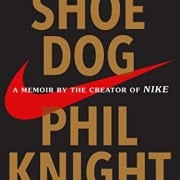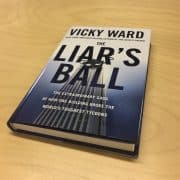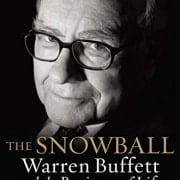Book Review: The Big Short
Why I liked “The Big Short”
Having first watched The Big Short (the film) I was curious to explore the book in search of any insights I may have initially missed. The book did not disappoint and provided an easy-to-read narrative which added depth to the characters and succinctly explained some of the tougher concepts I had previously struggled to understand such as ‘Alt-A mortgages’ and ‘silent seconds’. My own takeaways are mentioned below.
Full Title: The Big Short: Inside the Doomsday Machine
Author: Michael Lewis
Quick note from Spencer: This is the third in a series of book reviews we’ll be publishing to A.CRE. This post is written by Guest Author, Matthew de Klerk. A big thanks to Matthew for taking time out of his busy schedule to offer thoughts on this and other important books for real estate professionals.
Incentives Run the World
In the closing pages of the book, Michael Lewis describes what he believes to be the root cause of the financial crisis. He explains that it was not simply greed that created the crisis, but rather the “system of incentives that channeled the greed”. I enjoyed this more nuanced explanation, and personally believe that because greed is an innate human emotion, we should look to manage rather than eradicate it from society.
The most effective way to do this is to ensure the alignment of interests of all parties. Over the years, however, this is one concept Wall Street has consistently failed to grasp. This led to the same “heads I win, tails you lose” scenario occurring yet again in the run up to the crisis. Investment banks were allowed to lever up and take on risk (in exchange for exorbitant fees) with the full expectation that if things went wrong, the US Government would be forced to bail them out to avoid even further catastrophe. John Gutfreund (ex- CEO of Salomon Brothers) summarized the situation perfectly when he said “it’s laissez-faire until you get deep in the shit”, inferring that if the mistake is large enough, the US Government will have to bail them out.
Charlie Munger once said “if you want to know how people behave, you need only look at their incentives” and I believe that this is particularly apt in this context. The book not only furthered my belief in the power of incentives but also opened my eyes to the importance of effective financial regulation in managing such incentives.
How Are You Going to F**k Me?
When Danny Moses (one of Eisman’s head traders) was offered a near perfect trade, his immediate response was “I’ll do it, but only after you tell me how you’re going to f**k me”. Danny understood the “dog eat dog” culture on Wall Street better than most. His initial mistrust towards others was an advantage that enabled him to hone in on peoples core intentions and identify the true risk of making the trade. Although his manner of communication may be jarring/unfamiliar at first, I think it’s great long term. By ‘putting it all out on the table’ it creates a sense of trust between both parties because everybody knows where they stand.
I’d Rather be Divisive than Indecisive
The above quote resonated with me every time I read of any of Steve Eisman’s little “charades”. Whether it be unknowingly bad-mouthing others (he once told a Japanese C.E.O. that the company’s stock was as good as “Toy-lay Paper”) or rudely interrupting people mid-sentence, Steve’s curiosity always seemed to get the better of him. Vinny described the phenomenon as “learning mode”, explaining that when Eisman was “fascinated about a subject, his curiosity becomes far more important than being confrontational”. I enjoyed Eisman’s honest (albeit confrontational) approach as it leaves no room for misinterpretation – what you see is what you get, period.
Whilst some readers may have interpreted Eisman’s ill-mannered approach as a “holier than though” sign of arrogance, I found him to be rather humble. His lack of social skills and logical manner of thinking enabled him to process information in an unbiased manner – a skill that many other power-hungry Wall Street titans clearly lacked (i.e. Howie Hubler from Morgan Stanley). Steve Eisman may have ruffled a few feathers in his quest for the truth, however he was always open to the possibility of being wrong.
I noticed the same trait in both Charlie Ledley and Jamie Mai from Cornwall Capital, who exclaimed “we kept trying to find people who could explain to us why we were wrong”. Although there may have other motivating factors (making boat-loads of money) that the pair were seeking to confirm their trade idea, they remained humble and actively sought out opinions as to why they were wrong. In today’s highly competitive world where everyone is desperate for positive reinforcement (everyone loves being right), this display of humility is incredibly rare.
Download the Chapter by Chapter Executive Summary
If you enjoyed this review then feel free to check out the chapter by chapter executive summary for a more thorough analysis of the book.









